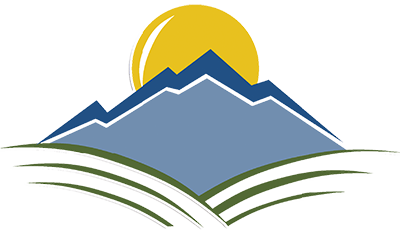Creating Connections: Building Community in Western North Carolina and Upstate South Carolina
.jpg?w=128&h=128)
Kathy Toomey
Your Trusted Guide in Western NC and Upstate SC Ready to make your move? Contact Kathy today for a no-obligation consultation and let her experience a...
Your Trusted Guide in Western NC and Upstate SC Ready to make your move? Contact Kathy today for a no-obligation consultation and let her experience a...
In today’s fast-paced world, many of us don't know the people next door. Making those connections might seem daunting, but building strong relationships within your neighborhood offers invaluable benefits. Investing time in getting to know your neighbors can improve personal well-being, strengthen the community, and even increase property values. In this article, we'll explore effective ways to connect with your community and why it's essential, focusing specifically on Western North Carolina and Upstate South Carolina.
Why Building Community Matters
A connected community brings numerous benefits. Studies show that knowing your neighbors can enhance safety, foster a sense of belonging, and boost emotional well-being. For homeowners, there are financial advantages as well—neighborhoods with strong ties often see increased property values because they become more attractive places to live. Whether you're putting down roots or considering selling your home, investing in your community benefits everyone.
How to Connect with Your Community
1. Attend Local Events
Western North Carolina and Upstate South Carolina are known for their numerous local events, from farmers' markets to music festivals and cultural fairs. For example, the Hendersonville Farmers Market is a fantastic place to meet neighbors and support local businesses. Meanwhile, events like the Greenville Greek Festival or the Spartanburg Music Trail offer shared experiences that can create lasting bonds. Attending these events helps foster a sense of community and strengthen local economies by supporting local vendors and artists. The relationships you form at these gatherings can lead to long-lasting connections that contribute to a stronger, more cohesive community.
2. Join or Start a Neighborhood Group
Neighborhood associations, book clubs, or hiking groups are great ways to connect with like-minded individuals. Participating in these groups fosters camaraderie and collaboration in a world where individual pursuits often dominate. If your neighborhood lacks such groups, consider starting one. A hiking club that explores the Blue Ridge Mountains or a gardening group that shares tips and plants can bring people together. These connections provide day-to-day support and can evolve into a reliable network of friends and acquaintances.
3. Engage in Volunteer Work
Volunteer opportunities abound in Western North Carolina and Upstate South Carolina. Participating in activities like organizing park cleanups along the Swamp Rabbit Trail or assisting at local food banks, such as MANNA FoodBank in Asheville, allows you to meet others who care about the community. Volunteering for local initiatives builds a sense of pride and responsibility for the neighborhood and fosters powerful bonds. When everyone is invested in the well-being of the area, it creates a positive, inclusive environment and can even boost property values.
4. Organize a Block Party
If you're looking for a more informal way to connect, consider hosting a block party. With spring around the corner, planning a neighborhood barbecue or potluck gives everyone something to look forward to. You don’t have to handle everything yourself—make it a collaborative effort where everyone contributes. Include music and games to make it enjoyable for all ages. Block parties not only provide fun but also encourage neighbors to share resources, experiences, and ideas, which can lead to long-lasting relationships that benefit the entire community.
5. Be a Friendly Neighbor
Small gestures can go a long way in building connections. A wave, a smile, or a brief conversation can lay the groundwork for deeper relationships. Introducing yourself to new neighbors or offering help, like sharing tools or assisting with minor tasks, creates a welcoming atmosphere. Over time, these small acts build trust and a sense of community, ultimately benefiting everyone.
Real Estate and Community: A Perfect Match
When buyers look for a home, they seek more than just a property; they look for a lifestyle and a sense of belonging. A thriving community can make your home stand out in a competitive market. Investing time in community-building has a ripple effect—engaged neighbors contribute to safer streets, well-maintained public spaces, and a friendly atmosphere, which attracts potential buyers.
Final Thoughts
Building community is about creating a network of support and a place where everyone feels at home. Whether you're new to Western North Carolina or Upstate South Carolina, or a long-time resident, it's never too late to connect with those nearby. A strong community can make all the difference when buying or selling a home, creating a fulfilling living experience. Reaching out to a neighbor could be the first step towards building lasting relationships that enrich your life and the lives of those around you.
Thinking about selling your home?
Get in touch. We'll guide you through every step of the process to ensure a smooth transaction that meets your goals.
.png)
.png)
